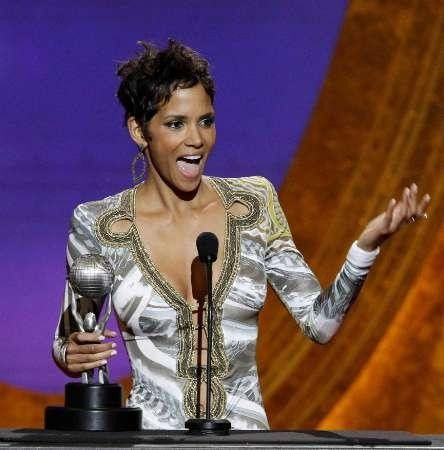Halle Berry Speaks to Ellen DeGeneres About Breastfeeding: Study Finds that Breast Milk Differs for a Boy and Girl (Watch Video)
Researchers Found That The Milk Composition Changes Depending on the Gender of the Infant

Oscar winning actress Halle Berry on The Ellen DeGeneres Show spoke about her pregnancy at the age of 46. She stated that she was "pre-menopausal" when she conceived her son, Maceo last year. She calls him a "miracle child".
Her daughter Nahlah was born in 2008, she went through a divorce and married French actor Olivier Martinez. After which Marceo was born.
She told Ellen, "I didn't think it was possible at my age, honestly. They call it a geriatric pregnancy. This is probably way TMI but I was already kind of pre-menopausal. To have this happen, only Nahla's prayers could've done this."
Halle also spoke of the differences in the breastfeeding of her son and daughter. She explained, "There's a difference between boys and girls. You know, I'm nursing both...I breastfed Nahla and I'm nursing my baby. When I would put Nahla on the boob she would go (light sucking) a nice little girly suck with him it's like (chomping suck) he's like sucking the life out of me. So I see the difference between boys and girls."
While her description may seem extremely hilarious, researchers have found that there really is a difference between the milk produced for a boy and a girl. A Michigan State University study found that the milk composition changes depending on the infant's gender.
For the study, 72 mothers in rural Kenya were analysed, women with sons had richer milk that contained 2.8 percent fat compared with 0.6 percent for daughters. Women with daughters, on the other hand had "creamier milk." The findings were published in the American Journal of Physical Anthropology.
Katie Hinde, an assistant professor in human evolutionary biology at Harvard University said, "Even beyond fat and protein, other milk components might vary in humans." Her previous work deals with how milk could affect an infant's growth and development. Hinde says only half the story is about what the mother is producing, the other half is how the infant uses the milk.
So now we know what Halle actually meant.





















